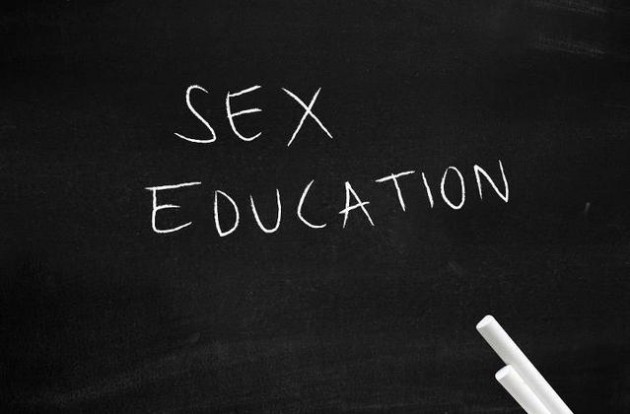May 20, 2009
Sex Ed. Please!

Could you coach football without ever having seen a game?
Each time I host a workshop that addresses the expansion of sexual repertoire, I’m reminded of the fact that very few of us have had the opportunity to learn about sex through the valuable lens of observation. Sure. Many of us have glanced at (and admired) our reflections in the heat of action in an overhead ceiling mirror and we’ve all been exposed to a whole bunch of actors (I use this term loosely) having the sexual time of their lives, but how many have actually watched others have sex for educational or erotic purposes? Very few.
And how many people have received any formal training in how to give and receive sexual pleasure? Other cultures teach their children how to pleasure themselves and offer formal instruction to young adults in the art of loving and sexual pleasure. This may sound outlandish, but some of our common sexual practices (too much tequila and some sloppy fumbling around in the dark) aren’t exactly practical or safe.
Sex, despite being the life-force, is one of the few activities that we are forced to learn without formal instruction or the opportunity to observe others in action. Yes. Women’s and men’s magazines fling the issue across their covers with sensationalist language and promises of real answers, but even their editors admit that they’re full of lies.
So it is no surprise that we all have so many questions and curiosities about sex. Despite the fact that sexual desire and response occur naturally, our innate sexual expression is repressed and limited by a culture that lacks an open dialogue regarding sexuality. What’s a girl or boy to do?
I suggest that we start asserting our right to open, honest and accurate sexual dialogue: demand comprehensive sexual health education in the schools; talk openly (at an age-appropriate level) with our children about the wonderful joys of sex; start talking to our partners about what we want, need and love; dialogue with friends about our real experiences, bloopers, successes, glitches and curiosities.
To the media: skip the sensationalist language that misleadingly sexualizes stories that have nothing to do with sex and start using accurate sexual language to describe issues of sexuality. What do I mean by this? First, stop referring to women as bombshells, strippers, prostitutes and other tags that demean us to our sexuality unless you really want to talk about our sexuality. If you’re really interested in listening, we’re willing to talk. Second, start using accurate language to refer to issues of sexuality instead of trying to gloss over sex acts with euphemisms and childish ambiguities. We can handle honest language to refer to healthy, natural acts of sex and prefer the appropriate terminology for our sex organs.
Finally, we need to develop meaningful and accessible opportunities for learning about sex and these educational forums should go beyond the basics of using condoms. We need to learn how to talk about sex, how to experiment with sexual activities and how to engage in a range of activities to maximize positive outcomes and minimize risks. Like cooking, playing football or writing essays, we require guided instruction and feedback to enhance our sex lives and continually improve upon our skills.
Let’s start an open dialogue about sex with no apologies. It’s about time.










